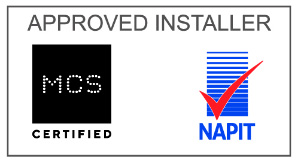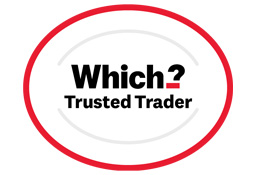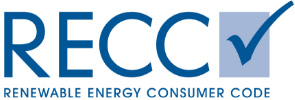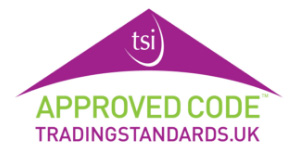Why choose
ASK Renewables?
Customer service above all
A family business approach
A modern system delivery
A modern technical business with old fashioned values
Our commitment is to make sure you get the system that’s right for you.
ASK Renewables will not send salespeople to your home; we only send our trained surveyors who will evaluate the suitability of your house, profile your energy usage and listen to your requirements.
Expect your surveyor to ask you a lot of questions! Furthermore, they will explain everything in as much detail as you require so you can feel confident you’re getting the system that best meets your requirements. We will not sell you anything you do not need and we’ll make sure you understand exactly what your system will do.
Take charge of your own power. Contact ASK for a quote now.
Meet the team
INDUSTRY STANDARD ACCREDITATION
GIVES YOU PEACE OF MIND
Frequently ASKed Questions
Do I need to tell my electricity supplier?
While you don’t need to tell your electricity supplier about your solar panels, informing your electricity supplier can lead to adjustments in your direct debit due to reduced grid electricity usage, access to preferential tariffs for solar PV owners, and eligibility for an export tariff or Smart Export Guarantee (SEG) for surplus electricity generated. A smart metre installation by your supplier may be required for the export tariff.
Who do I need to tell about my solar panels?
Your District Network Operator (DNO) should be informed. For systems with an inverter size of 3.68kw or less, a G98 notification is sufficient and we’ll handle this under a fit and inform basis meaning we can install in as little as 10 days from receiving a signed order from you. Systems with inverters over 3.68kw require a G99 application, which can take up to 45 working days to process. Your installer will manage this process, but please note you should wait for the DNO response before installing your PV system.
Do solar panels need planning consent?
In most cases, solar panels fall under permitted development so you do not need to make a
planning application. There are exceptions, if you live in a listed building, an area of
outstanding natural beauty, a conservation area or a World Heritage site you may need
planning consent, you should make these enquiries before agreeing to an installation.
How long do solar panels last?
Solar panels are designed for durability and longevity, with top-tier, monocrystalline solar panels often coming with manufacturer warranties that guarantee their product for 15 to 20 years or more. This assurance reflects the robustness of solar panels, which, thanks to having no moving parts, are remarkably long lasting. However, it is natural for solar panels to experience a slight decrease in efficiency over their lifespan.
An exemplary testament to the durability of solar panels is a PV system installed by the SUPSI PV Lab in Switzerland in 1982, which remains operational and continues to generate electricity effectively to this day. For more insights into their long-standing research and achievements in solar energy, visit SUPSI PV Lab.
When investing in a solar PV system, consider it a commitment of at least twenty years. During this period, it’s likely that the inverter, a key component of the system, will need to be replaced to maintain optimal functionality and efficiency.
Is a solar panel installation disruptive?
The installation of a solar panel system is generally not considered to be disruptive. This perspective is supported by feedback from readers of Which? Magazine, where 94% of those who had a PV system installed in the last decade reported the process to be minimally intrusive.
The installation process does require some preparation and infrastructure, such as the erection of scaffolding a few days prior to the installation. However, the actual installation of the solar panels typically concludes within a single day. Following the installation, the scaffolding is usually removed within 7 to 10 days. This efficient and streamlined process ensures that homeowners can transition to solar energy with minimal impact on their daily lives, making the switch to renewable energy both convenient and straightforward.
What are the initial costs involved in installing solar panels?
When considering the installation of solar panels, it’s important to understand the associated initial costs. A key point to note is that a reputable and established solar panel installer typically does not request upfront payments for standard installations, except under specific circumstances that involve considerable preparatory work. Such scenarios might include necessary ground works for laying cables before the actual installation can commence.
For domestic, residential solar panel systems, the process should begin with a comprehensive assessment of your property. This involves an in-person survey conducted by the installer to evaluate your home’s suitability for solar panels and to identify the optimal setup for your energy needs. Following this evaluation, the installer should provide you with a detailed, bespoke quote tailored to your specific situation. Importantly, this initial survey and the quotation process are offered free of charge by reputable service providers. This approach ensures transparency and allows homeowners to make informed decisions without the pressure of upfront financial commitments.
Can I benefit from government grants or incentives for solar panel installation?
Yes, you can benefit from government grants or incentives for installing solar panels through schemes like the Smart Export Guarantee (SEG). The SEG requires energy suppliers with more than 150,000 customers to offer export tariffs to households in England, Scotland, and Wales. These tariffs compensate you for each kilowatt-hour (kWh) of electricity your solar panels generate but don’t use, which is then fed back into the grid.
The compensation rates vary significantly among utility companies, ranging from as low as 1p to as high as 20p per kWh. Some schemes, like the Octopus Agile Outgoing, may offer more but with fluctuating rates every half-hour. It’s essential to research and select the most advantageous tariff available to maximise your returns. For those who are willing to engage more actively, a time-of-use export tariff could potentially earn you additional income.
Furthermore, ASK Renewables provides products equipped with software packages enabling you to export stored energy at optimal times, such as during peak demand periods when prices are highest.
How do I determine the right size solar panel system for my home?
Determining the optimal size for your solar panel system hinges on two primary factors: the amount of electricity you aim to generate and the available space on your property for installing the panels. Achieving the right balance is essential to ensure that your system aligns with your energy needs and objectives.
At ASK Renewables, we understand the significance of your investment in a solar PV and storage system. Our commitment to helping you maximise the returns from your investment is reflected in our approach to system design. We insist on conducting an in-person survey for every client. This allows us to assess your specific needs and the spatial dynamics of your property first-hand. Based on this detailed evaluation, we design a bespoke solar panel system tailored to your unique requirements and goals.
This personalised approach ensures that your solar system is not only efficient and effective but also optimised for the best possible performance and return on investment.
What maintenance is required for solar panels?
Solar panels are renowned for their durability and low maintenance requirements, primarily because they lack moving parts and therefore are extremely reliable. However, it’s important to acknowledge that solar panels can experience a slight reduction in efficiency over time. This degradation is gradual and can be mitigated to some extent by occasional cleaning, particularly if your home is in a coastal area or a location with high levels of dust and traffic pollution. Such environments can lead to the accumulation of residues on the panels, which may affect their performance.
It’s advisable to view your solar PV system as a long-term investment, ideally over a twenty-year horizon. Within this period, one key component that you may need to budget to replace in order to maintain the system’s efficiency and reliability is the inverter. Planning for the eventual replacement of the inverter ensures that your solar energy system continues to operate effectively, providing sustainable energy to your home while minimising the need for extensive maintenance.
Can solar panels still generate power on cloudy days?
Absolutely, solar panels are capable of generating power even on cloudy and rainy days, though their efficiency may not reach peak levels experienced under direct sunlight. The effectiveness of solar panels under such conditions varies with the density of the cloud coverage. Clouds, fog, and even shade from surrounding trees can diminish the intensity of sunlight reaching the panels, consequently reducing their output.
Despite these reductions in efficiency, it’s important to note that solar panels do not cease operation in the absence of direct sunlight. They continue to produce electricity, albeit at reduced levels, by capturing diffused sunlight that penetrates through the clouds. This capability ensures that solar panels can contribute to your home’s energy needs across a variety of weather conditions, enhancing the overall viability and sustainability of solar energy as a reliable power source.
Is it possible to upgrade my solar panel system in the future?
Indeed, upgrading your solar panel system in the future is entirely feasible, provided you have sufficient space to accommodate additional solar panels. Whether you’re looking to expand your current system or install a new, separate system, increasing your solar energy capacity can be a smart way to enhance your home’s energy efficiency and sustainability.
However, it’s important to exercise caution if you’re currently benefiting from a Feed-in Tariff (FiT) scheme. Making alterations or expansions to your solar panel system could potentially affect the terms of your FiT payments. Before proceeding with any upgrades, it’s advisable to thoroughly review your FiT agreement and consult with your solar provider or a solar energy expert. This will help ensure that your planned upgrade maximises your energy production without adversely impacting the financial benefits you receive from your feed-in tariff
Can I add a battery storage system to my existing solar panels?
Indeed, upgrading your solar panel system in the future is entirely feasible, provided you have sufficient space to accommodate additional solar panels. Whether you’re looking to expand your current system or install a new, separate system, increasing your solar energy capacity can be a smart way to enhance your home’s energy efficiency and sustainability.
However, it’s important to exercise caution if you’re currently benefiting from a Feed-in Tariff (FiT) scheme. Making alterations or expansions to your solar panel system could potentially affect the terms of your FiT payments. Before proceeding with any upgrades, it’s advisable to thoroughly review your FiT agreement and consult with your solar provider or a solar energy expert. This will help ensure that your planned upgrade maximises your energy production without adversely impacting the financial benefits you receive from your feed-in tariff.






